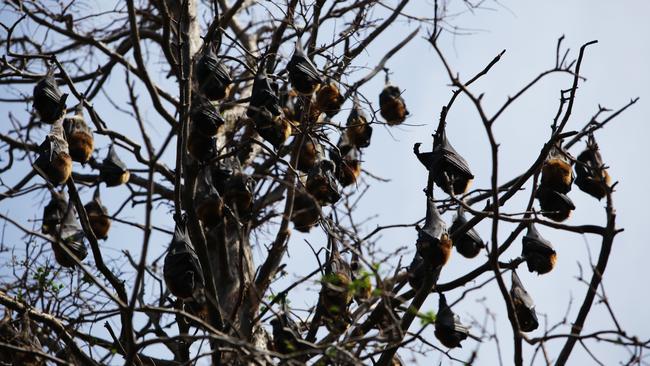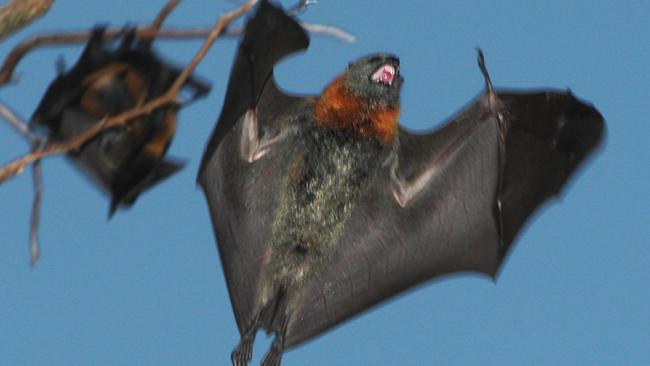Melbourne man bitten by a bat carrying fatal lyssavirus disease
A MELBOURNE man has been bitten by a bat infected with a fatal virus which could have killed him within two weeks, prompting a public warning.
VIC News
Don't miss out on the headlines from VIC News. Followed categories will be added to My News.
VICTORIANS have been urged not to touch bats after a Melbourne man was bitten by an animal infected with a virus that can be 100 per cent fatal to humans if left untreated.
The bat was carrying the Australian bat lyssavirus, which causes flu-like symptoms, paralysis, convulsions and death within two weeks of the symptoms starting.
FRUIT BATS ARE DYING IN NETTING
The state’s deputy chief health officer, Dr Brett Sutton, is warning the disease is "100 per cent fatal” if a person who is scratched or bitten develops symptoms and is not treated with vaccine.
He issued an urgent warning that injured animals should only be attended to by trained and vaccinated wildlife experts.

The Hawthorn resident, who was tending to a distressed animal in April has received a vaccine for the virus, which is similar to rabies.
“Unfortunately, a man trying to assist a distressed animal was bitten,” Dr Sutton said.
“The bat was found to be carrying lyssavirus and the man has received a two-week course of rabies vaccine to prevent him developing the disease.”
Fewer than one per cent of healthy bats carry the virus and the disease is detected up to three times a year in Victoria, but no human cases have ever occurred in the state.
All three people infected in Queensland from bats died from the disease.

On average, three people are treated with post-exposure treatment each week in Victoria after being bitten or scratched by a bat.
“As long as people avoid touching bats, flying fox colonies and fruit bats that forage in eucalypts and fruit trees pose little risk to Victorians,” Dr Sutton said.
If anyone suspects lyssavirus disease in a bat, call the Department of Environment, Land, Water and Planning on 136 186 or the Emergency Disease Watch Hotline on 1800 675 888.
For further information on the virus in humans, contact the Communicable Disease Prevention and Control Unit on 1300 651 160.


